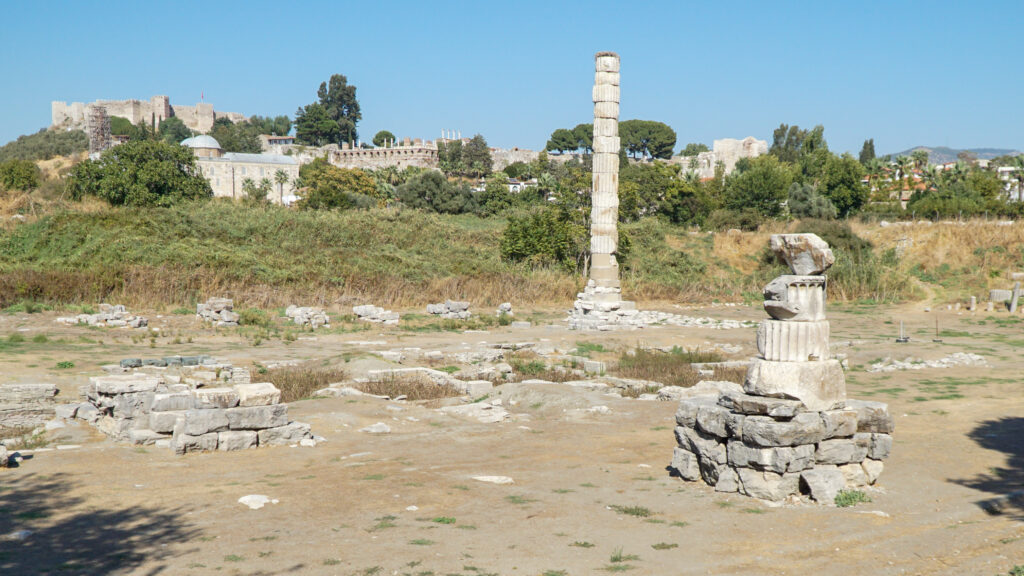Our introduction to Ephesus started with Randy’s talk on the short drive from the hotel. We will see not the original, but Ephesus III, the one from New Testament time. It has a Sacred Way for triumphal parades. It was completely planned, an orthogonal city. It had two agoras. The two streets are the ones Paul saw. The restoration is mostly to second century Ephesus.
Randy discussed the assimilation of soldiers. Gauls adopted into a Roman family got the name of the family. They received a token, a medal with a reference number, for their inheritance, a tract of land along the Tiber River.
The harbor at Ephesus needed to be dredged every 10 years because it filled with silt from the rivers. This made Ephesus very dependent on government aid. They wanted to please the emperor.
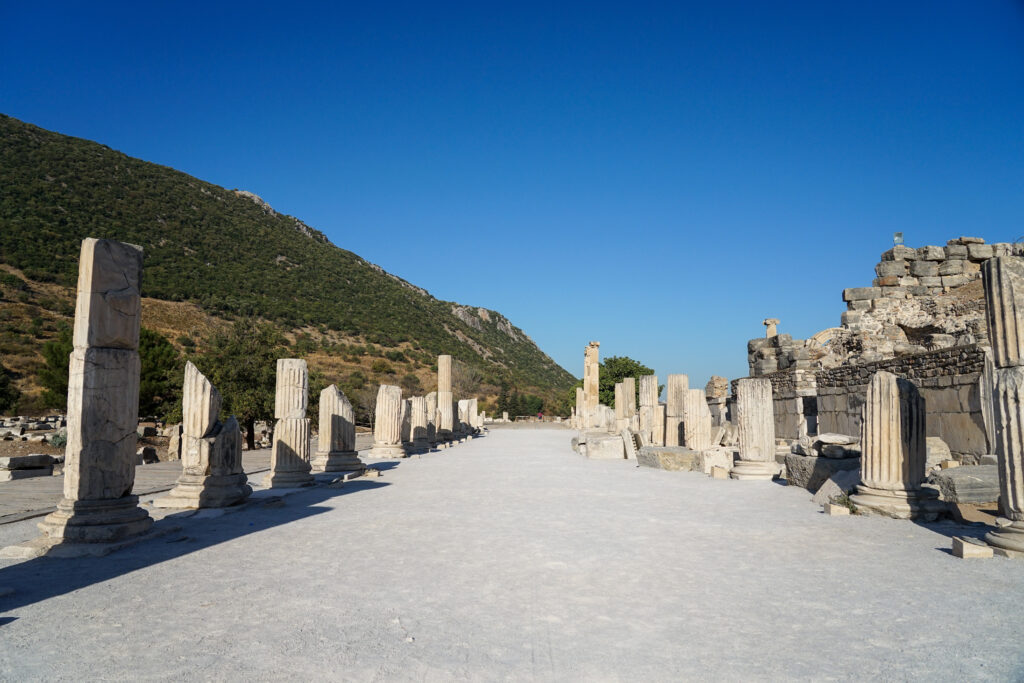
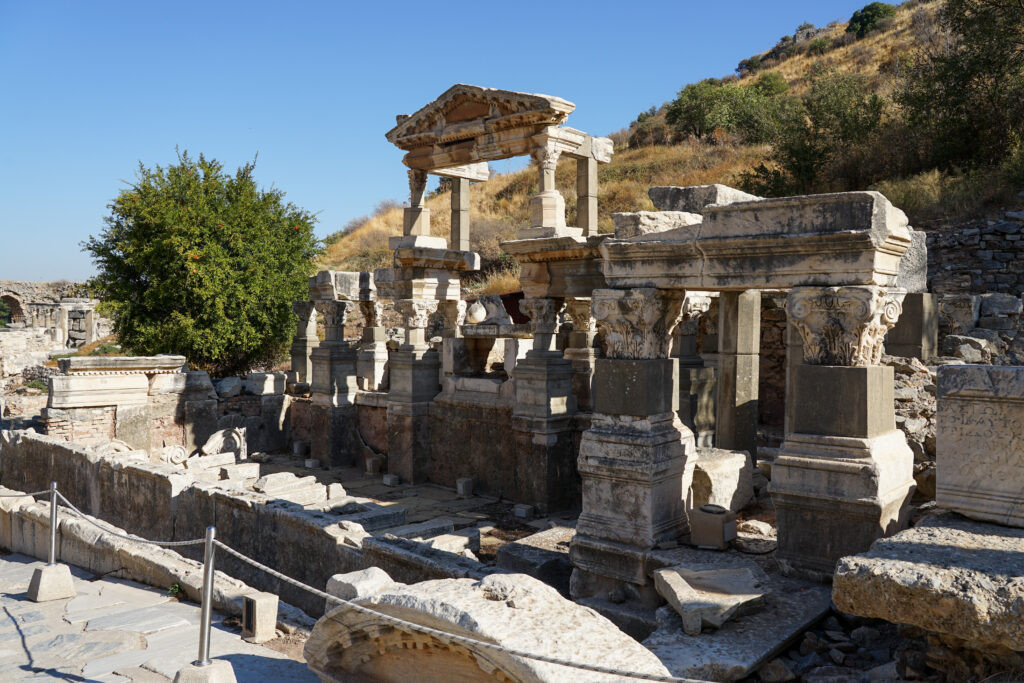
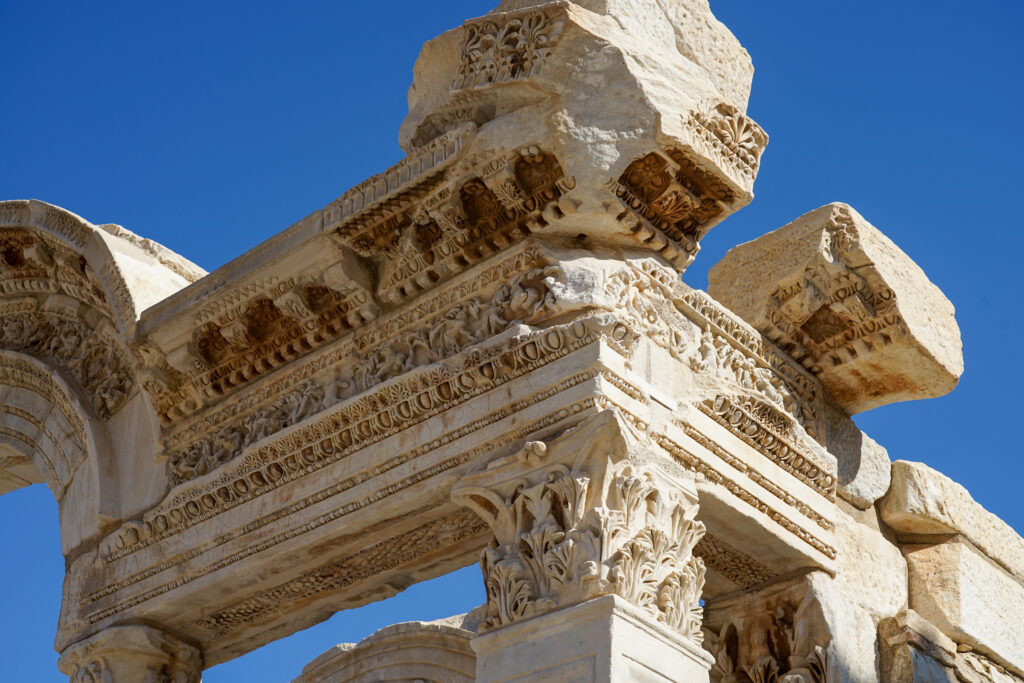
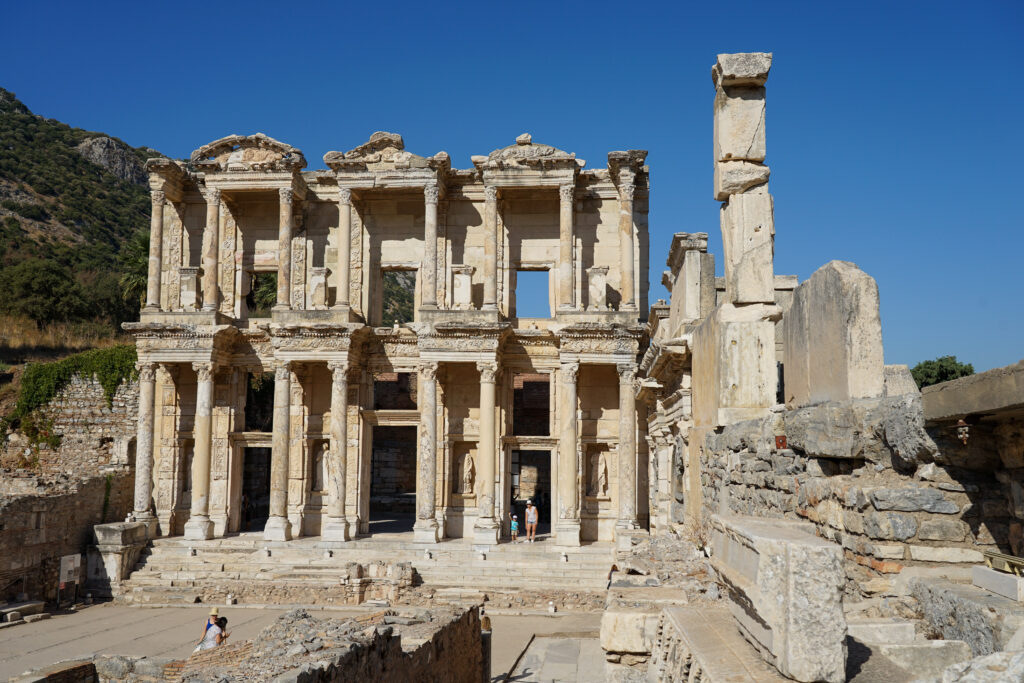
We listened to the lesson of the five walks in Ephesians. From 4:1-3 an illustration from the slave trade, a regulated and taxed industry. Walk worthy, according to what is on your titulus, the advertisement for a slave in the market.
In chapter 4, the gifts are to the church not to individuals. Gifts as those thrown from a float in a parade. Take off old clothes, put on new, as in a public bath. Walk in love, the kind that serves, not the kind learned from Hollywood. Walk in light.
Near the theater we found a spot in the shade to hear the story from Acts 19. Demetrius said Paul was persuading people all over Asia that gods made with hands are not gods at all. He said they needed to do something to keep their god in power, proving that it was not a god at all. If the town clerk had declared the gathering in the theater an unlawful assembly, he had the power of the Roman garrison to disperse the crowd.
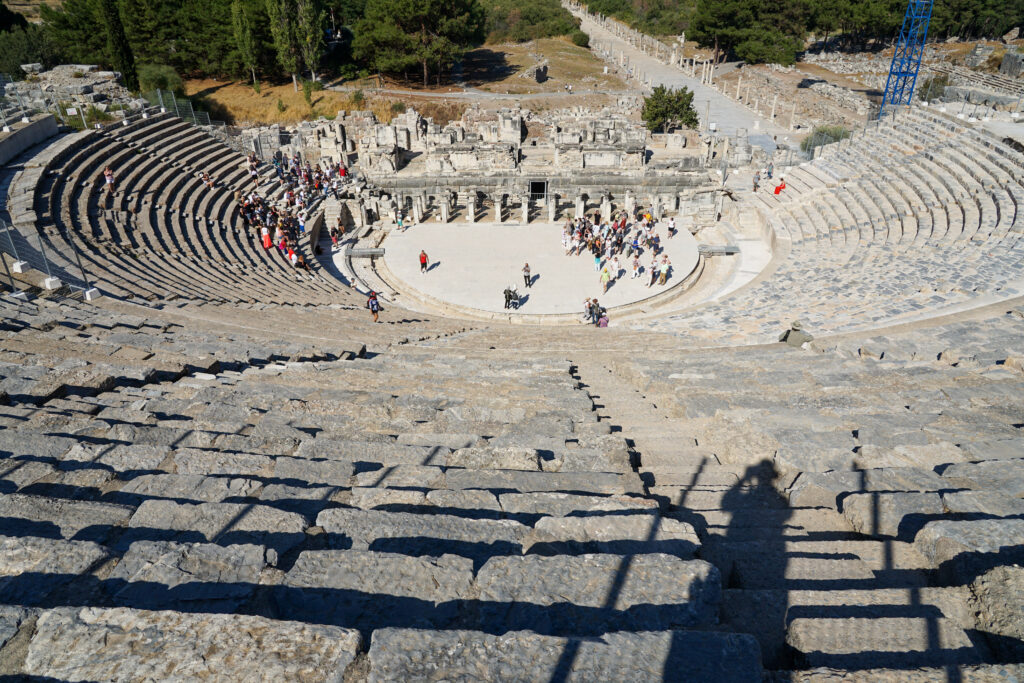
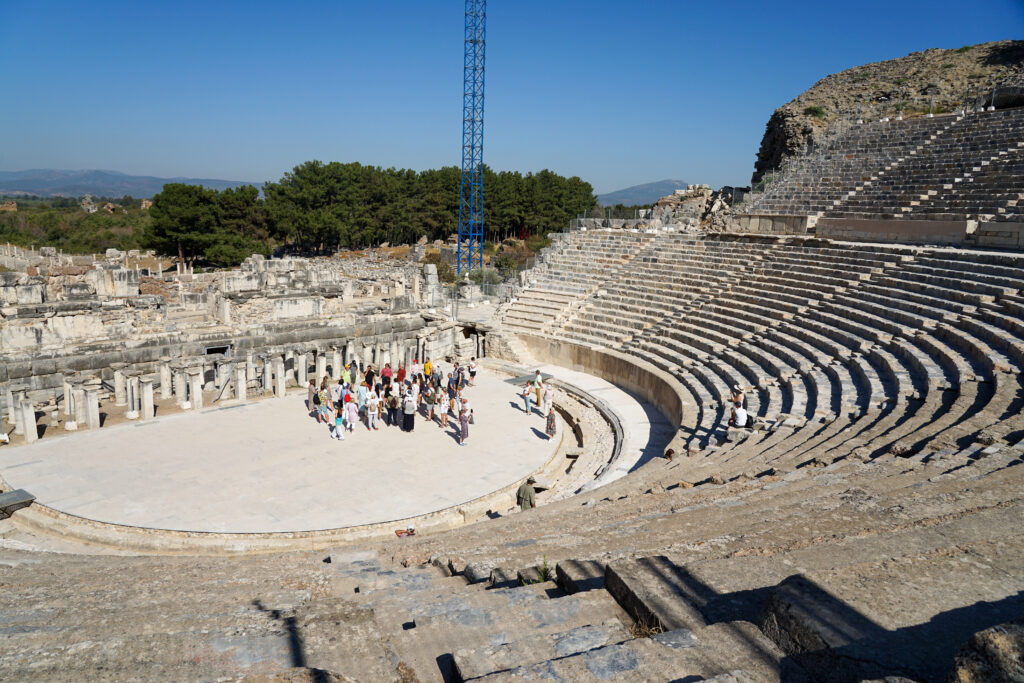
We looked at John’s letter to the church at Ephesus. John was bishop of the church here. Love (agape) is acting deliberately to meet a need because there is a need, expecting nothing in return. They had sent away their first love. This in the town where love is especially remembered. The temple of Artemis was one of wonders of the ancient world.
The seven stars possibly referenced the deified baby of Domitia. Nicolas is mentioned in Acts 6:5. Ephesus was home of what we call naturalism and atheism.
Sometimes we do work for Jesus instead of working with Jesus. Also, there may be a tendency to replace quality with quantity. There is a difference between walking intimately and working actively. We should focus on the primary goal, walking with You and taking joy in the walk.
After Ephesus we stopped at a carpet outlet. Carpet making is done by ladies. They can focus for 27 minutes at a time, men for 9 minutes. Also, ladies’ fingers are more slender and nimble. Carpet making is often a sideline work done at home. If more than one lady works on a carpet the difference in pressure. Turkish carpets are unique in that they are made with a gordon knot on two threads. A 4×6 foot carpet can take 6 months, more in a very fine, intricate carpet. Some have 325 knots per square inch, 645 in a finer yarn and more intricate design. The highest density wall hanging I saw was 2000 knots per square inch.
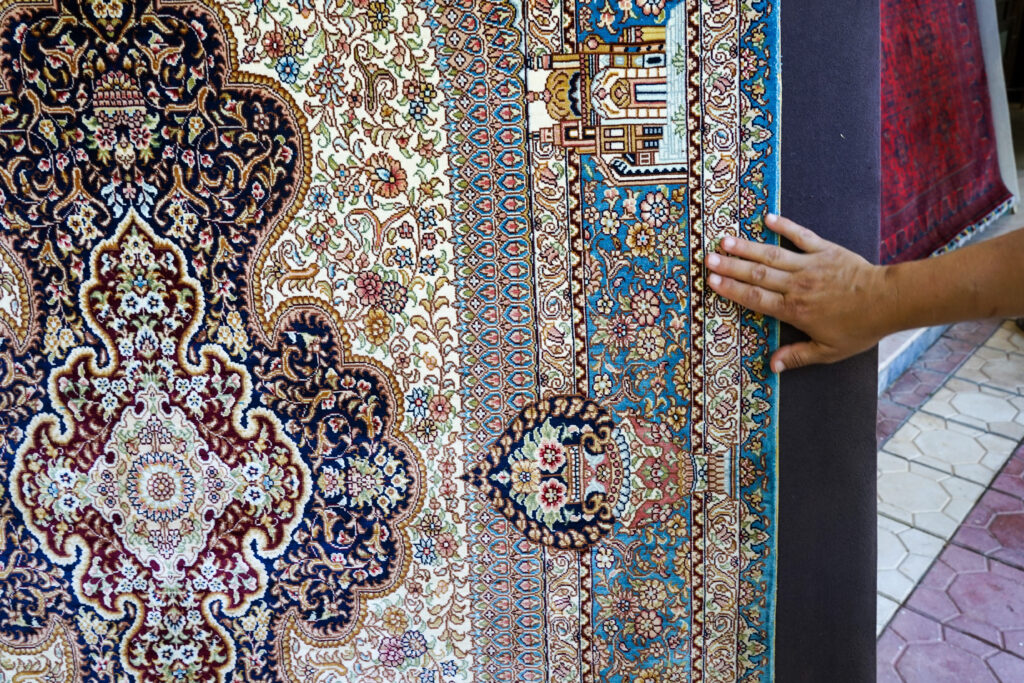
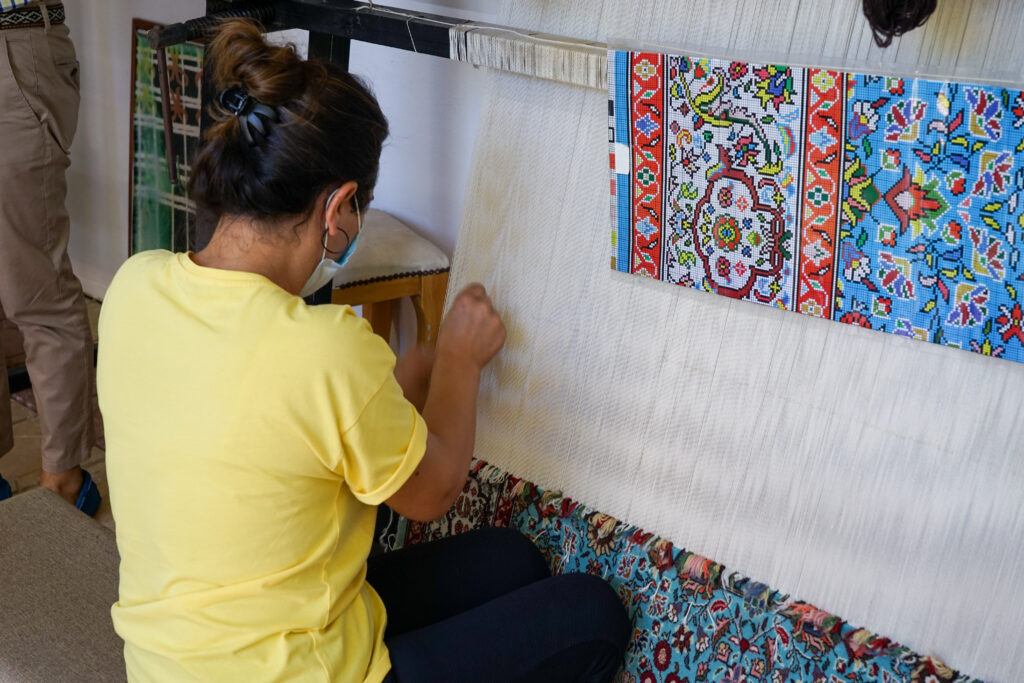
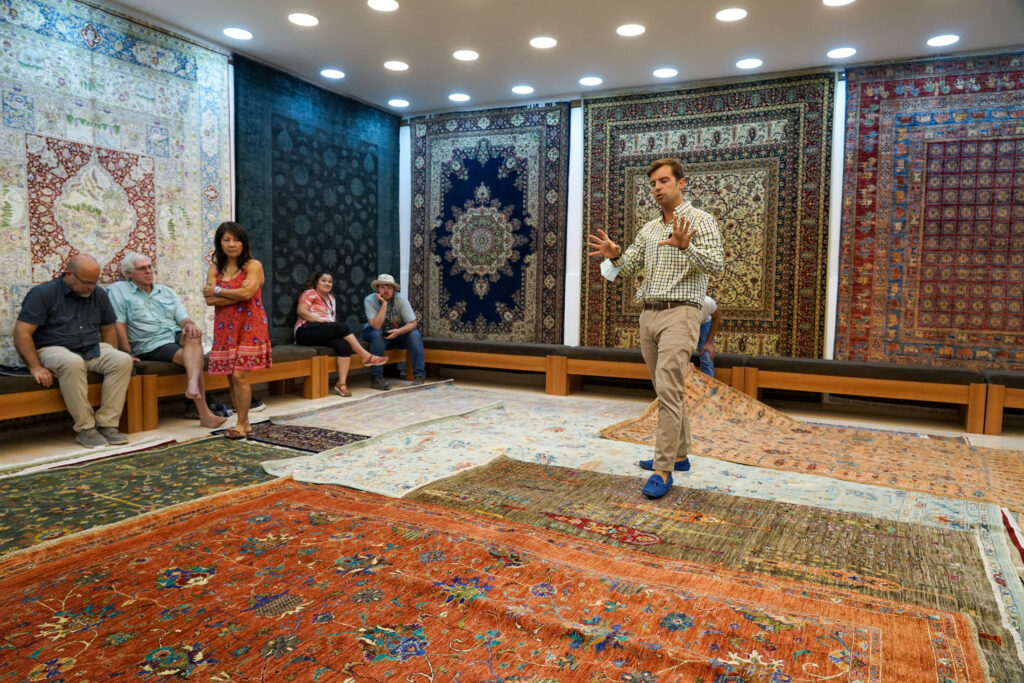
We visited the Museum of Ephesus. It contains two well-preserved statues of Artemis, also known as Diana.
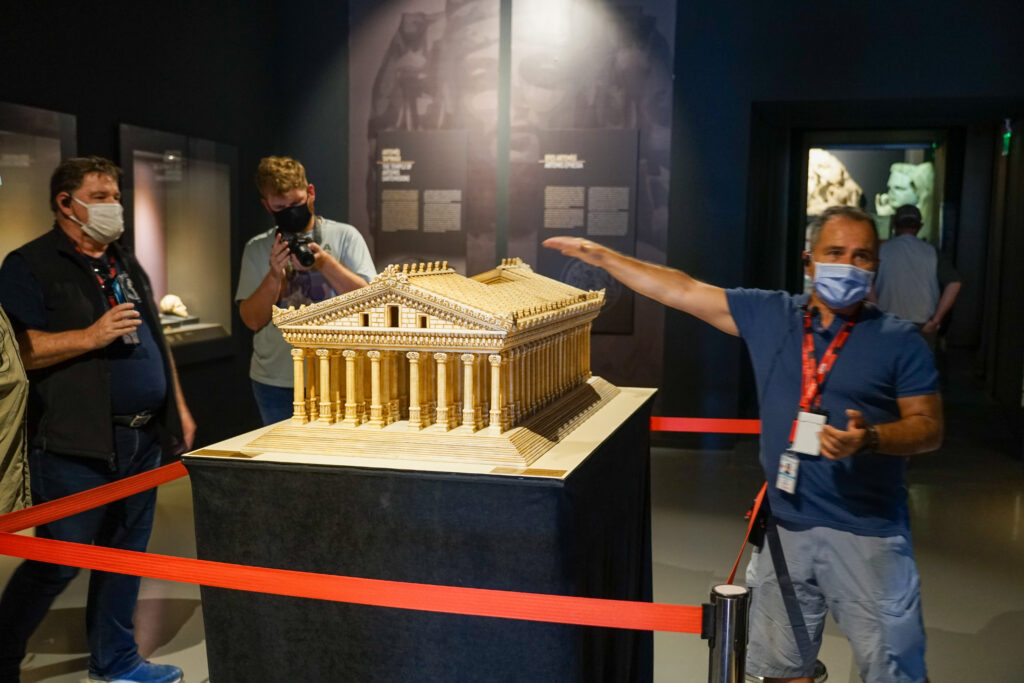
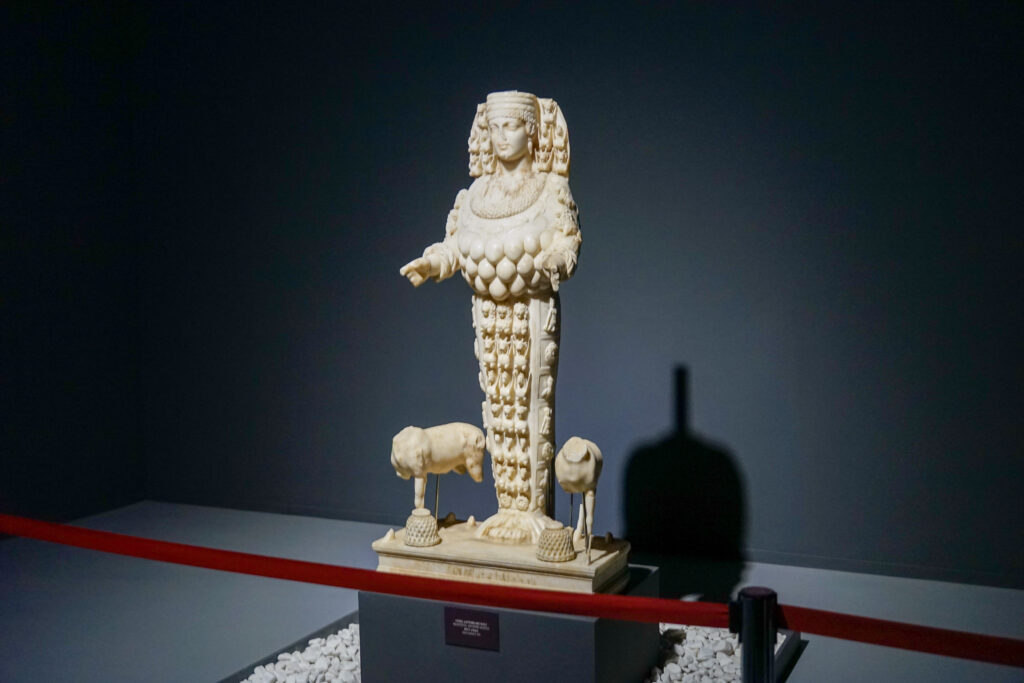
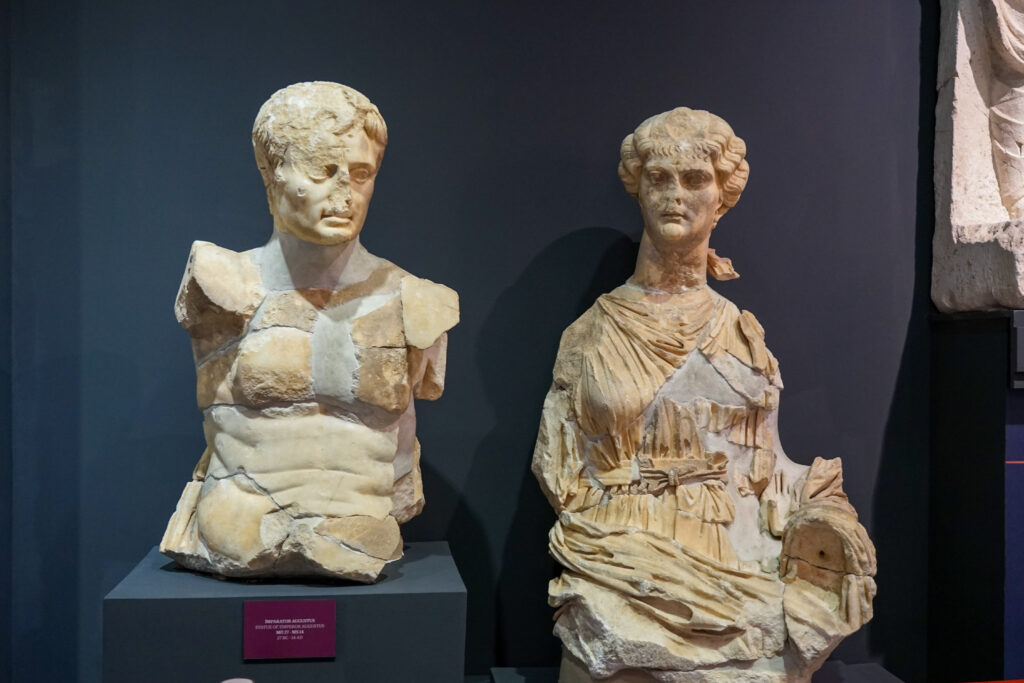
Lastly we stopped at the site of the temple of Artemis. It had been listed as one of the seven wonders of the ancient world by a Greek traveler in 200 BC.
